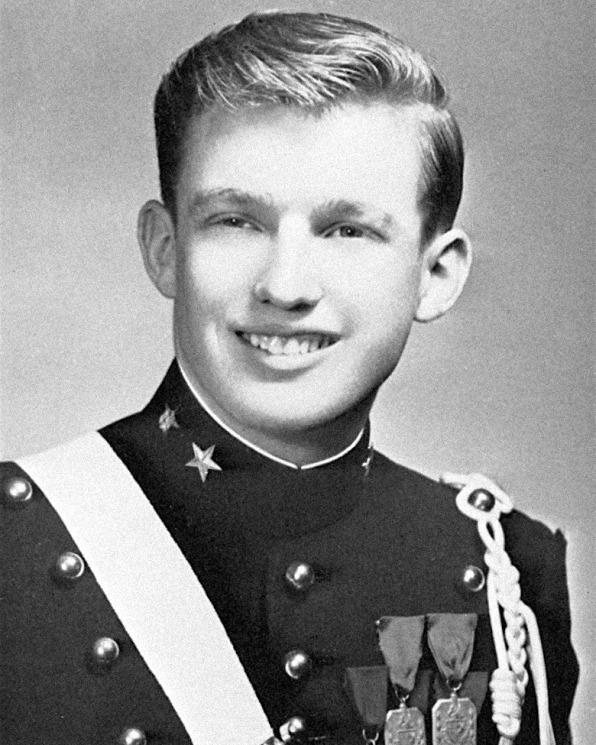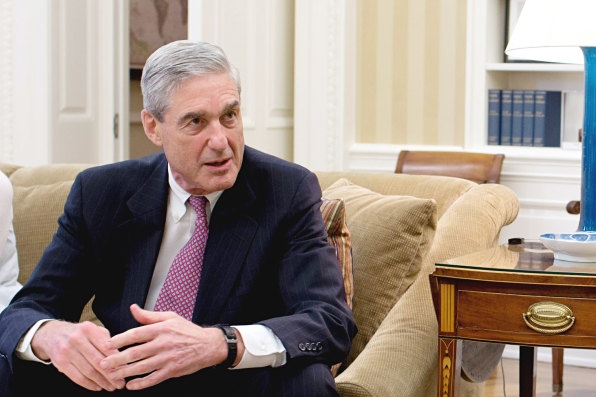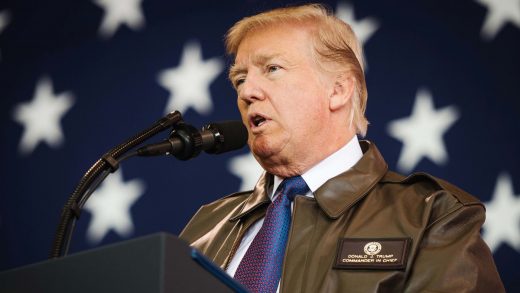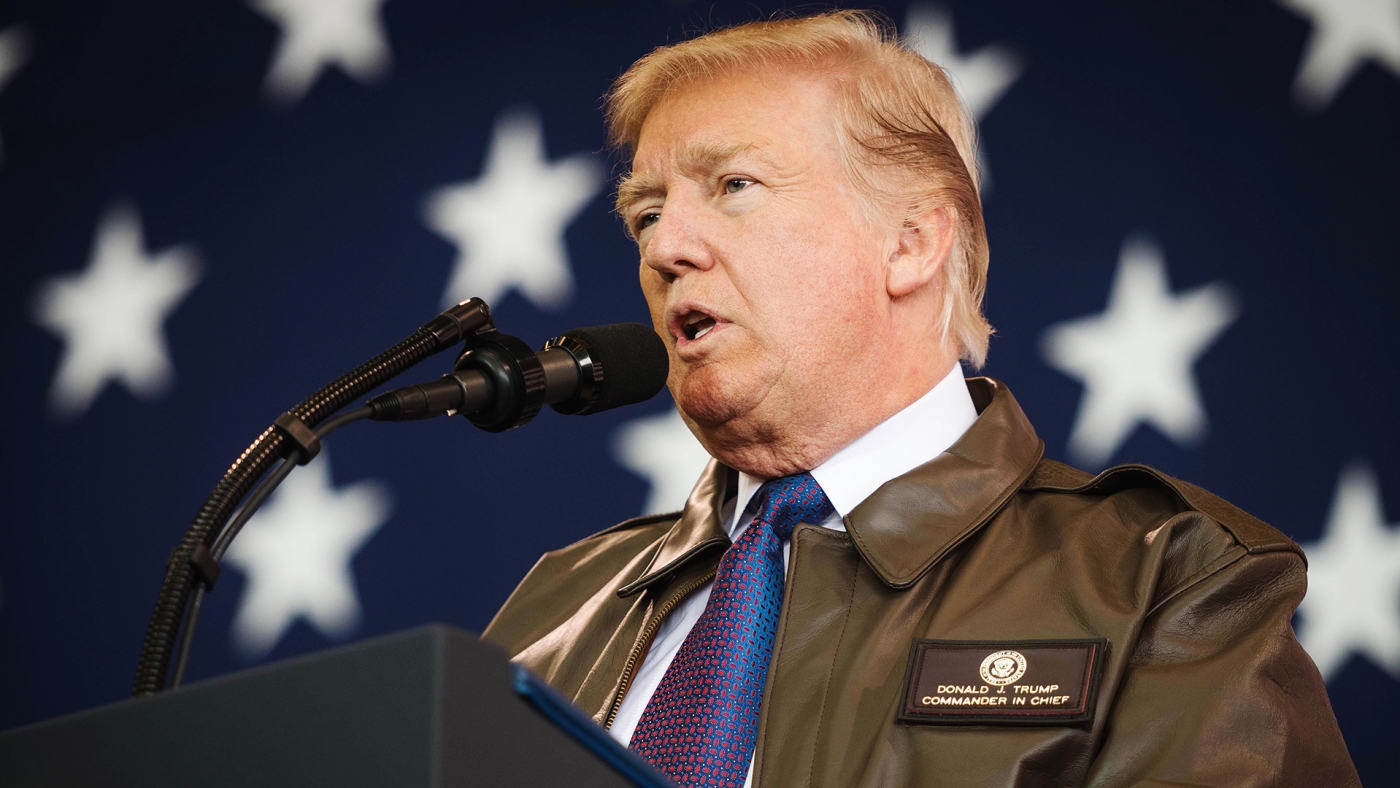Donald Trump Will Do Anything To Avoid Prosecution–And John Bolton Will Help
This story reflects the views of this author, but not necessarily the editorial position of Fast Company.
In October 2017, U.S. Army Sergeant La David Johnson died in a hail of gunfire while fighting off militants in Niger. Soon after, his widow, Myeshia Johnson, received a call from President Donald Trump. After coldly telling her that her husband “knew what he signed up for,” Trump failed to remember the slain soldier’s name, leaving Johnson shocked and crying.
“I heard him stumbling on trying to remember my husband’s name, and that’s what hurt me the most, because if my husband is out here fighting for our country and he risked his life for our country, why can’t you remember his name?” she said.
As the U.S.’s deranged president threatens to go to war in Syria and possibly beyond, it is worth re-examining how Trump views the troops whose lives he is putting on the line. For all his macho posturing and exhortations about his beloved generals, Trump–a draft dodger who referred to avoiding STDs as “my personal Vietnam”–has long treated veterans and their loved ones with contempt. This contempt is not rooted in an aversion to the military as an institution–Trump bloated the military budget and has been striking the Middle East while threatening North Korea and other states–but an aversion to the concept of service to one’s nation itself.
Serving one’s country is a sacrifice, and sacrifice terrifies Trump. The idea that one would risk oneself–out of love, loyalty, or duty–is alien to him. Sacrifice, to Trump, is a sucker’s bet, a gamble beyond his comprehension–but one he is all too willing to let other Americans make.
At the July 2016 Democratic Convention, Khizr Khan, father of slain Army Captain Humayun Khan, proclaimed of Trump: “You have sacrificed nothing and no one!” The critique cut to Trump’s core, judging by his racist response. Trump’s brand is risk–the high-stakes deal, the bold venture. But for most of his life, Trump has only taken a risk when the reward is guaranteed by others.

[Photo: Seth Poppel/Yearbook Library/Wikimedia Commons]
Born rich, Trump followed his father into the family business to become richer, and remained in his hometown his whole life. His inner circle has been tightly controlled and contained, consisting mainly of his family and his lawyers–who serve not only to salvage his businesses by exploiting loopholes and requiring NDAs–but by threatening perceived enemies. One of his only close friends seems to have been his mentor, ruthless mobster lawyer Roy Cohn, Trump’s constant companion until Cohn died of AIDS in 1986.
“Where’s my Roy Cohn?” Trump plaintively asked as the Mueller probe bore down. His latest Roy Cohn, lawyer Michael Cohen, was recently the subject of an FBI raid. With Cohen sidelined, Trump is more exposed than ever–and more out of control. Trump has always functioned best in scripted reality ––supplying his own tabloid fodder, playing a successful version of himself on The Apprentice. He demands attention but shuns scrutiny. Trump needs to be a brand because he’s terrified of being a person.
In July 2015, Trump insulted John McCain, who was tortured as a military prisoner in Vietnam. “He’s not a war hero,” Trump scoffed. “I like people who weren’t captured.” The comment shocked the audience, but it is completely in line with Trump’s worldview. What offends Trump about McCain is not that he was captured, but that he was willing to risk being captured–especially for a cause greater than himself.
This is not to say Trump does not thrive on disaster. He began his career profiting off the financial ruin of New York City (“When bad times come, then I’ll get whatever I want,” he told Barbara Walters in the 1980s) and continued to spout this philosophy before his presidential run (“You know what solves it? When the economy crashes, when the country goes to total hell and everything is a disaster. Then you’ll have, you know, you’ll have riots to go back to where we used to be when we were great,” he told FOX News in February 2014.) Trump loves a catastrophe if he is its beneficiary.
As a businessman, Trump paid no mind to the victims of his disaster capitalism, an indifference to suffering that prevailed even last week, when a Trump Tower tenant burned to death due to Trump’s refusal to install a sprinkler system. Trump offered no condolences. He epitomizes this casual disregard for human life as commander-in-chief. About nukes, Trump has said, “If we have them, why can’t we use them?” When told last week that the CIA waited until a target left his family before dropping a drone, Trump asked, “Why did you wait?” His apathy toward the death of others is broad and all-encompassing, extending from military targets to civilians to the dead U.S. troops whose names he can’t remember and whose families he insults.

[Photo: Pete Souza/Official White House Photo]
As Mueller and the FBI penetrate Trump’s criminal and Kremlin-tied inner circle, Trump will again take solace in predictable disaster–and there is no surer route to predictable disaster than John Bolton, the newly appointed national security adviser for whom war has long been the answer to every question. Like Trump, Bolton has advocated preemptive strikes, including the use of nuclear weapons; is willing to fabricate information to justify policies; and has a reputation as an Islamophobe. Similar to the ruthless lawyers with whom Trump surrounded himself in the past, Bolton provides the bureaucratic knowledge Trump lacks, but matches him in sadism. Bolton’s appointment led to a number of foreign policy analysts wondering if the end was nigh.
It may well be if the volatile team of Trump and Bolton insert the U.S. more forcefully into the ongoing devastation of Syria. This action is allegedly in response to Syrian President Bashar al-Assad’s use of chemical weapons, but it is naïve to believe humanitarian impulses play any role. If the plight of Syrians truly matter to Trump, an obvious move would be to allow Syrian refugees into the U.S., which he refuses to do. Bolton has long sought to invade Iran and may see Syria as a pretext to that incursion. Trump, meanwhile, is struggling to present himself as a hardliner on Russia in order to thwart critics while simultaneously trying to save face with his oligarch backers, as his contradictory tweets from Wednesday display.
The U.S. has had presidents who used the military to distract from domestic disasters, fabricated pretexts for war, or showed apathy toward civilian casualties. But we have never had a president whose greatest loyalty appears to be to foreign backers, nor have we had a pan-warmonger as national security adviser in an administration with a barely functioning State Department. It is difficult to say whether the U.S. winning a war–in a conventional sense–is the goal of Trump and Bolton at all.
That may sound strange–Trump’s obsession with “winning” is infamous. But the winning is always more about Trump more than it is about the United States–and at times the concepts are mutually exclusive. Trump’s definition of an attack on the U.S. is when his lawyer’s home is raided by the FBI, not when Russia attacks our elections and infrastructure. As president, his main goals have been building a kleptocracy and dodging criminal prosecution, and any war– particularly when it involves Russia–will be enacted with those twin aims in mind. If Trump distracts the public from his own misdeeds, and financially benefits and consolidates power through war, it will not matter to him how many lives are lost–including the lives of U.S. servicemen and servicewomen. His callousness toward U.S. troops places him in stark contrast to any predecessor.
Bolton is similarly unconventional. Unlike the vast majority of state officials, he does not regret the Iraq War, and has seemingly learned nothing from its failures. His main regret seems to be that his desire for a similarly reckless invasion of other nations was not carried out. But Trump, with his visceral revulsion at the concept of service, is still the greatest danger. It is Trump whose past has finally caught up with him; it is Trump who stands the most to lose; it is Trump who unilaterally can launch nuclear weapons. Trump has shown that human beings have little inherent value to him. If Trump senses he may have to make a personal sacrifice, he will sacrifice the world instead.
Sarah Kendzior is the author of the essay collection “The View From Flyover Country.”
(47)



